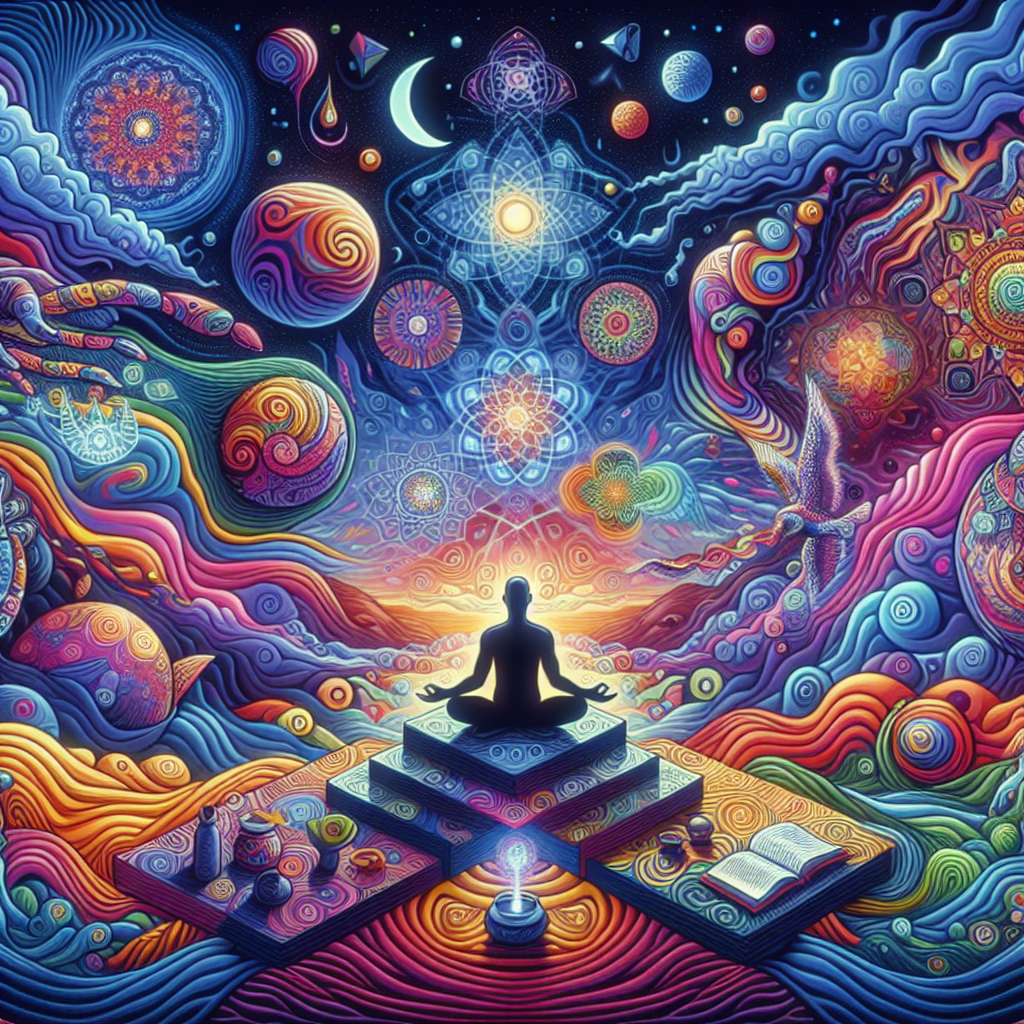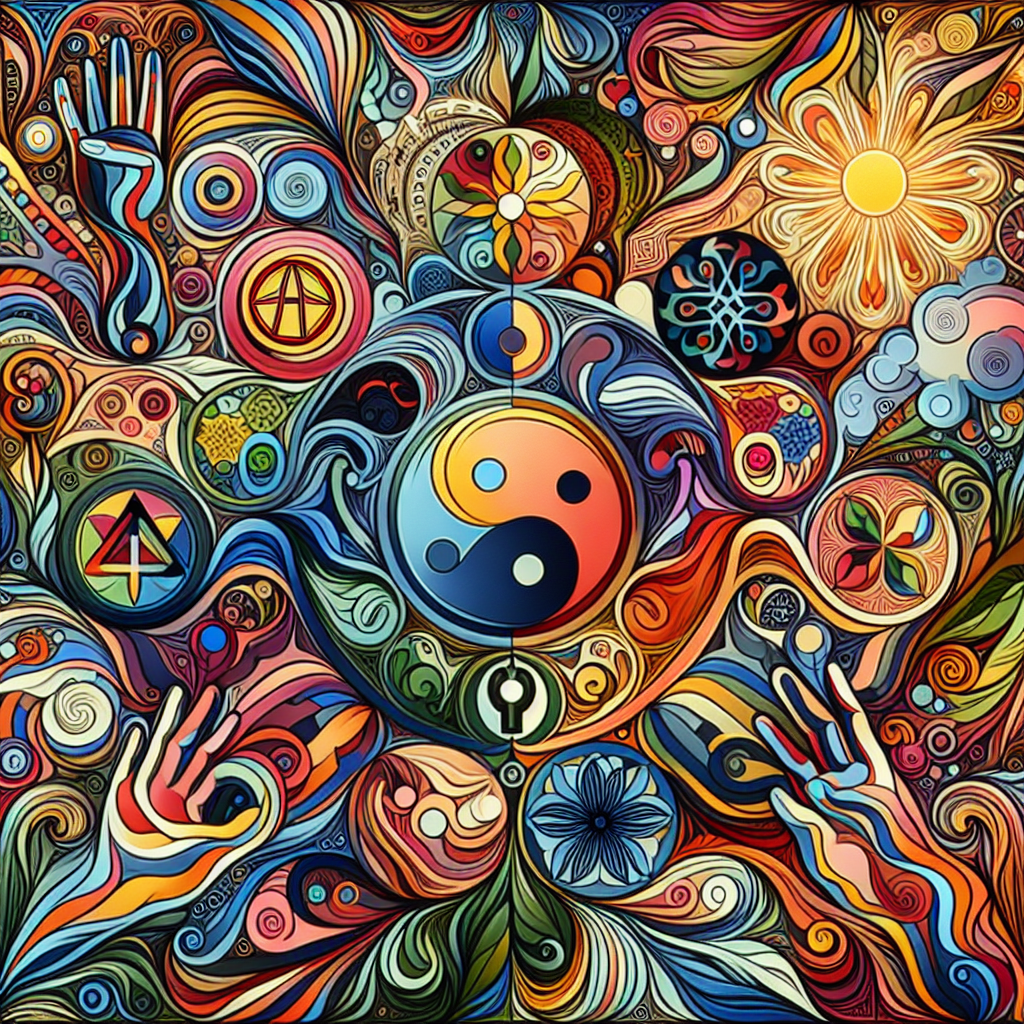The Role of Psychedelics in Holistic Well-Being

Discover more about the role of psychedelics in holistic well-being. Uncover the potential benefits and transformative power these substances can have on your overall health. Visit My Vibrant Vitality now to learn more.
Exploring the Impact of Psychedelics on Emotional and Mental Health
Psychedelics, once relegated to the fringes of society, are now experiencing a renaissance in the realm of mental health and holistic well-being. These substances, which include LSD, psilocybin (found in magic mushrooms), and DMT, have been the subject of numerous studies and clinical trials, revealing their potential to profoundly impact emotional and mental health.
Psychedelics have a long history of use in various cultures for spiritual and healing purposes. However, it is only in recent years that the scientific community has begun to explore their therapeutic potential in a formal setting. The results have been nothing short of remarkable, with psychedelics showing promise in treating a range of mental health disorders, including depression, anxiety, and post-traumatic stress disorder (PTSD).
The mechanism by which psychedelics exert their effects is complex and not fully understood. However, it is believed that these substances work by disrupting default patterns of thinking and perception, allowing for new connections and insights to emerge. This can lead to profound shifts in perspective and self-understanding, which can be therapeutic for individuals struggling with mental health issues.
One of the most promising areas of research involves the use of psychedelics in the treatment of depression. In a groundbreaking study published in the New England Journal of Medicine, psilocybin was found to be as effective as a leading antidepressant in treating moderate to severe depression. This is a significant finding, given the limitations and side effects associated with conventional antidepressants.
Moreover, psychedelics have shown promise in treating anxiety, particularly in individuals facing terminal illness. In a study published in the Journal of Psychopharmacology, participants who received a single dose of psilocybin reported significant reductions in anxiety and depression, effects that persisted for up to six months. This suggests that psychedelics could offer a powerful tool for individuals grappling with existential distress.
In addition to their potential therapeutic applications, psychedelics may also play a role in promoting overall emotional well-being. Many individuals who use these substances report experiences of profound insight, connection, and personal growth. These experiences can lead to lasting changes in attitudes and behaviors, contributing to a greater sense of purpose and satisfaction in life.
However, it is important to note that the use of psychedelics is not without risks. These substances can induce intense and sometimes distressing experiences, and their use should be supervised by trained professionals. Furthermore, individuals with a history of psychosis or other serious mental health conditions should avoid using psychedelics due to the potential for adverse reactions.
In conclusion, the emerging research on psychedelics paints a promising picture of their potential to enhance emotional and mental health. While further research is needed to fully understand their mechanisms of action and potential risks, the current evidence suggests that these substances could play a significant role in the future of mental health treatment. As our understanding of psychedelics continues to evolve, it is clear that these substances offer a powerful tool for promoting holistic well-being.
The Role of Psychedelics in Enhancing Mind-Body Connection

The role of psychedelics in holistic well-being is a topic that has been gaining significant attention in recent years. This is largely due to a growing body of research suggesting that these substances, when used responsibly and under the guidance of a trained professional, can have profound effects on mental health and overall well-being. One of the most intriguing aspects of this research is the potential role of psychedelics in enhancing the mind-body connection, a fundamental aspect of holistic health.
The mind-body connection refers to the relationship between our mental and physical health. It’s the idea that our thoughts, feelings, beliefs, and attitudes can positively or negatively affect our biological functioning. Conversely, what we do with our physical body—what we eat, how much we exercise, even our posture—can impact our mental state. This interplay between our physical and mental selves is at the heart of holistic well-being.
Psychedelics, such as psilocybin (found in magic mushrooms), LSD, and ayahuasca, have been found to significantly enhance this mind-body connection. These substances work by altering perception and cognition, often leading to experiences of unity and interconnectedness. This can result in a heightened awareness of one’s physical body and a deeper understanding of the relationship between physical sensations and mental states.
Moreover, psychedelics have been shown to facilitate a state of hyper-connectivity in the brain. This means that areas of the brain that don’t typically communicate with each other start to interact. This increased connectivity can lead to novel thoughts and insights, and a greater sense of integration between the mind and body. It’s as if these substances help to bridge the gap between our physical and mental experiences, allowing us to perceive ourselves as whole beings rather than separate entities.
In addition to enhancing the mind-body connection, psychedelics have also been found to have therapeutic potential for a range of mental health conditions, including depression, anxiety, and post-traumatic stress disorder (PTSD). This is thought to be due, in part, to their ability to facilitate a process known as “ego dissolution,” where one’s sense of self temporarily dissolves, leading to a state of openness and receptivity. This can provide a unique opportunity for individuals to confront and process difficult emotions or traumatic experiences, often leading to significant improvements in mental health.
However, it’s important to note that while the potential benefits of psychedelics are promising, they are not without risks. These substances can induce intense and sometimes challenging experiences, and should only be used under the supervision of a trained professional. Furthermore, they are not suitable for everyone, particularly those with a history of psychosis or other serious mental health conditions.
In conclusion, the role of psychedelics in enhancing the mind-body connection is a fascinating area of research with significant implications for holistic well-being. These substances have the potential to deepen our understanding of ourselves, facilitate healing, and ultimately, promote a greater sense of wholeness and integration. As research in this area continues to evolve, it’s clear that psychedelics have much to offer in our quest for holistic health and well-being.
Psychedelics and Spirituality: A New Approach to Holistic Well-Being
The role of psychedelics in holistic well-being is a topic that has been gaining significant attention in recent years. This is largely due to a growing body of research suggesting that these substances, when used responsibly and under the guidance of a trained professional, can have profound effects on mental health and spiritual growth. This new approach to holistic well-being, which combines the use of psychedelics with traditional therapeutic techniques, is revolutionizing the way we understand and treat a variety of mental health conditions.
Psychedelics, such as psilocybin (found in magic mushrooms), LSD, and ayahuasca, have been used for centuries by various cultures around the world for their spiritual and healing properties. These substances are known to induce altered states of consciousness, during which users often report experiencing profound insights, feelings of interconnectedness, and a heightened sense of empathy and compassion. These experiences can lead to significant shifts in perspective and behavior, which can be particularly beneficial for individuals struggling with mental health issues such as depression, anxiety, and post-traumatic stress disorder (PTSD).
In recent years, a growing number of studies have begun to explore the potential therapeutic benefits of psychedelics. For instance, research conducted at Johns Hopkins University found that psilocybin therapy significantly improved the mental health of individuals with life-threatening cancer diagnoses. Similarly, a study published in the Journal of Psychopharmacology found that a single dose of LSD significantly reduced anxiety in patients with life-threatening diseases. These findings suggest that psychedelics can have a profound impact on mental health, particularly when used in conjunction with traditional therapeutic techniques.
However, the use of psychedelics in holistic well-being goes beyond their potential therapeutic benefits. Many users report that these substances have helped them to explore and deepen their spirituality, leading to a greater sense of purpose and meaning in life. This spiritual dimension is often overlooked in traditional mental health treatments, but it is a crucial component of holistic well-being. By facilitating spiritual growth, psychedelics can help individuals to find inner peace and resilience, which can be particularly beneficial in times of stress and adversity.
Despite the promising potential of psychedelics in holistic well-being, it is important to note that these substances are not a panacea. They should be used responsibly and under the guidance of a trained professional to ensure safety and efficacy. Furthermore, the use of psychedelics should be complemented with other holistic practices such as meditation, yoga, and healthy eating, which can further enhance mental health and spiritual growth.
In conclusion, the role of psychedelics in holistic well-being represents a new approach to mental health and spirituality. By combining the use of these substances with traditional therapeutic techniques, we can potentially revolutionize the way we understand and treat a variety of mental health conditions. However, further research is needed to fully understand the potential benefits and risks associated with the use of psychedelics in holistic well-being. As we continue to explore this exciting frontier, it is our hope that we can develop more effective and holistic treatments for individuals struggling with mental health issues.